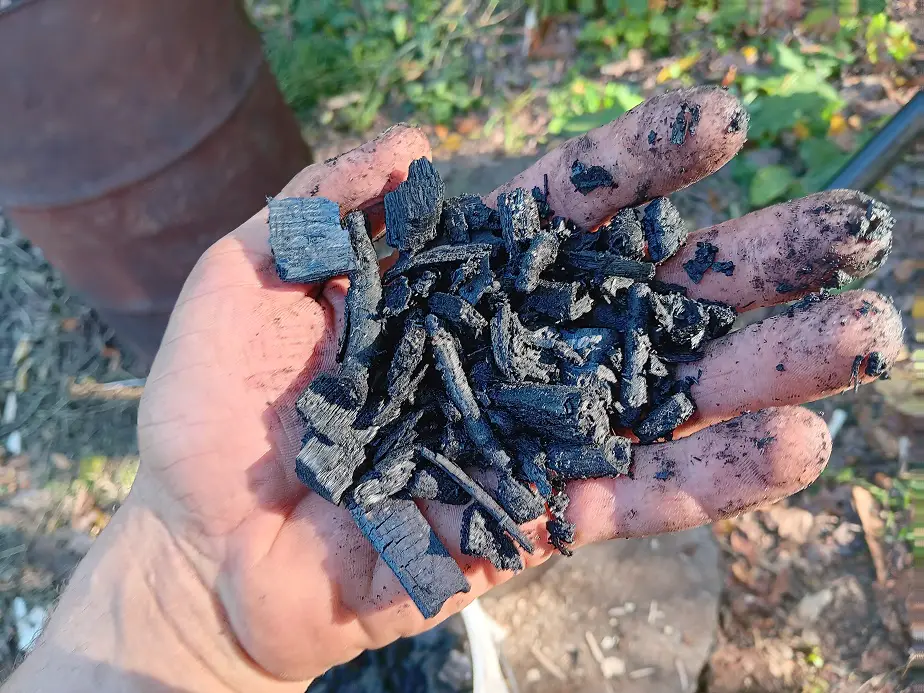I have made a lot of biochar for our farm because there are so many valuable uses for it. Here are my favorites.
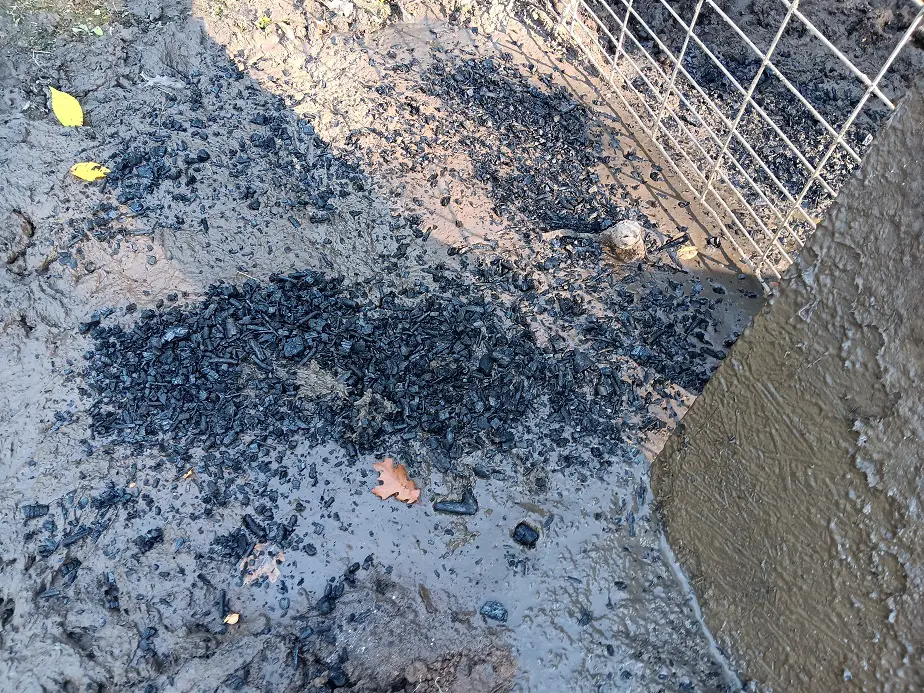
Use it to Catch Run-Off Fertility
In agriculture, fertilizer run-off is a big deal. Not only to the farmer who needs that fertilizer in the soil, but also to the EPA which can bring the hammer down on a farmer for his fertility leaching out and running off to a waterway or government-owned land.
The biggest concern is around manure runoff, or saving the fertility in manure. We raise pigs in small paddocks in our backyard. As they fertilize one section, we move them to the next so we can plant a crop. I need the fertility to stay there. But it’s all sloping ground.
By making a small trench at the low side of each paddock and filling it with biochar, I can stop basically all the organic nutrient loss through runoff. Then the char will be spread out in the soil before planting time. It’s like a fertilizer and soil amendment in one.
The same thing works along fields or gardens on a slope. Fill a slight trench with char. Burry it slightly if you want. It will absorb most all of any runoff nutrients that would have left your growing soil. You could just spread it on the ground, but a heavy rain will wash the char down the slope.
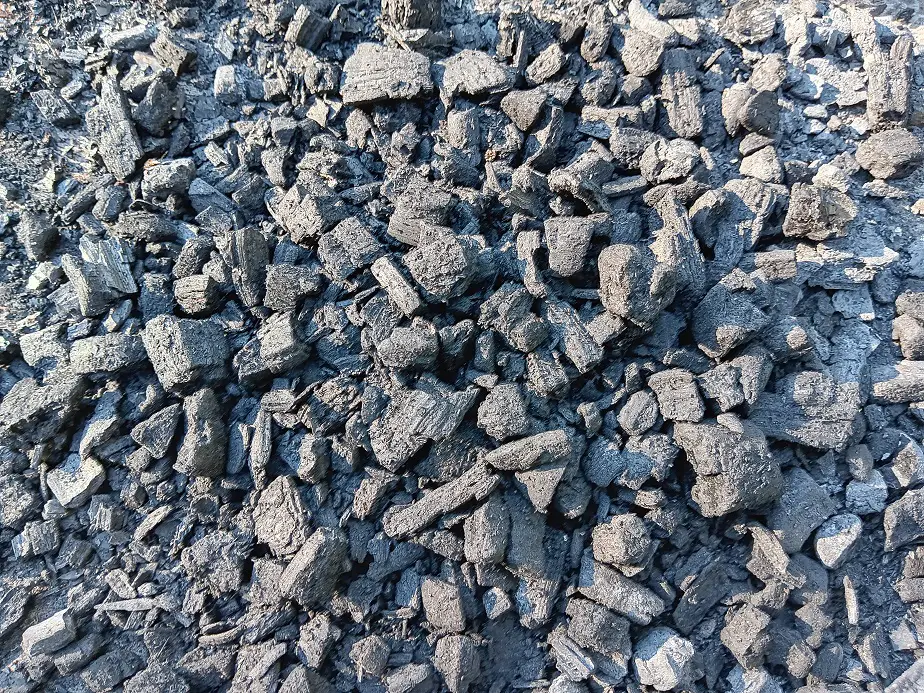
Use It in Chicken Coop Bedding
If you have chickens and you want to be sustainable, you should use biochar. Chicken manure is a very good fertilizer but it can lose the majority of its plant nutrition as it sits and ages. Most people use a bedding like straw or wood shavings to help absorb their liquid manure. That helps save fertility.
Biochar absorbs the nitrogen and potassium in chicken manure before is has much chance to outgas into ammonia and other gasses. It also absorbs a lot of moisture because it’s very porous.
If you have a slimy, muddy chicken pen (hey, it happens) the addition of a bit of biochar will really help dry it up, prevent that foul fowl smell, and even help keep flies out of the manure. The final result will be a manure material with significantly more fertility and structure to add to your soil.
We need to do things which build up the world around us. By increasing the fertility power of your manure, you are increasing what you can do and decreasing your dependence on outside forces.
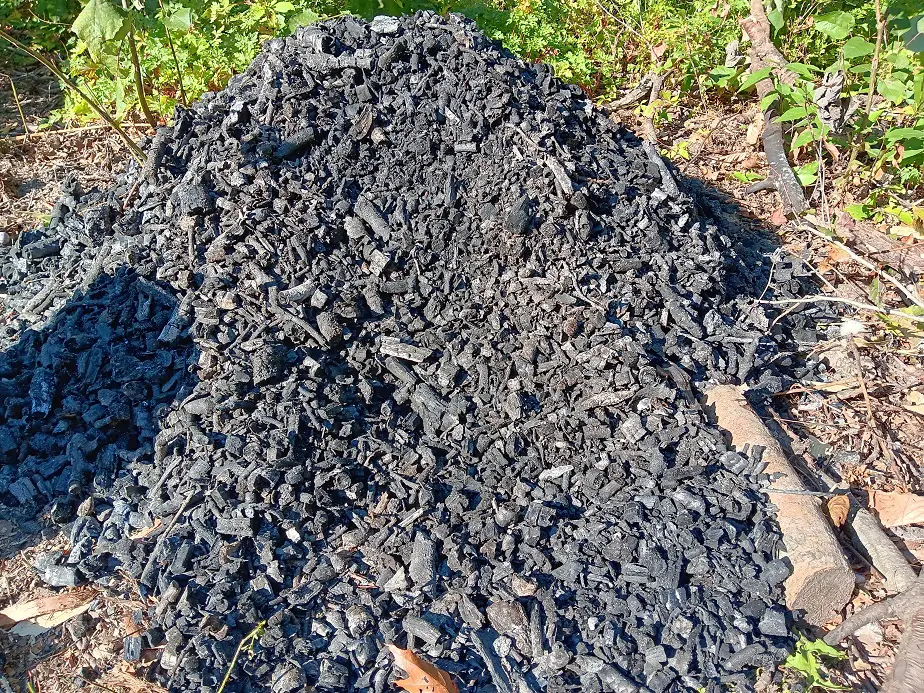
Layer it Into Manure Piles
If you have manure piles, you are certainly losing manure fertility as it sits in the sun and rain. A manure pile can lose most of its Nitrogen and Potassium by sitting in the open. By layering biochar into the pile as you build it, you can greatly reduce the amount of lost fertility.
Biochar can double the breakdown time of manure in piles. Even at inclusion rates as low as 3 percent, it can decrease the breakdown time of manure by 20 percent. Here’s a report talking about that.
By spreading a layer on top and around the manure pile, you can greatly reduce outgassing and runoff loss of nutrients too. Also, adding biochar at around a 5-10 percent inclusion rate can cause aged or composted manure to retain 50 percent or more soil nutrition.
If you pile up manure, you should consider using biochar. It’s darn handy stuff. I am working all our production on 1 acre. We don’t have any room for nutrient loss and can’t afford a low-fertility problem. Biochar is a super tool for the small farmer.
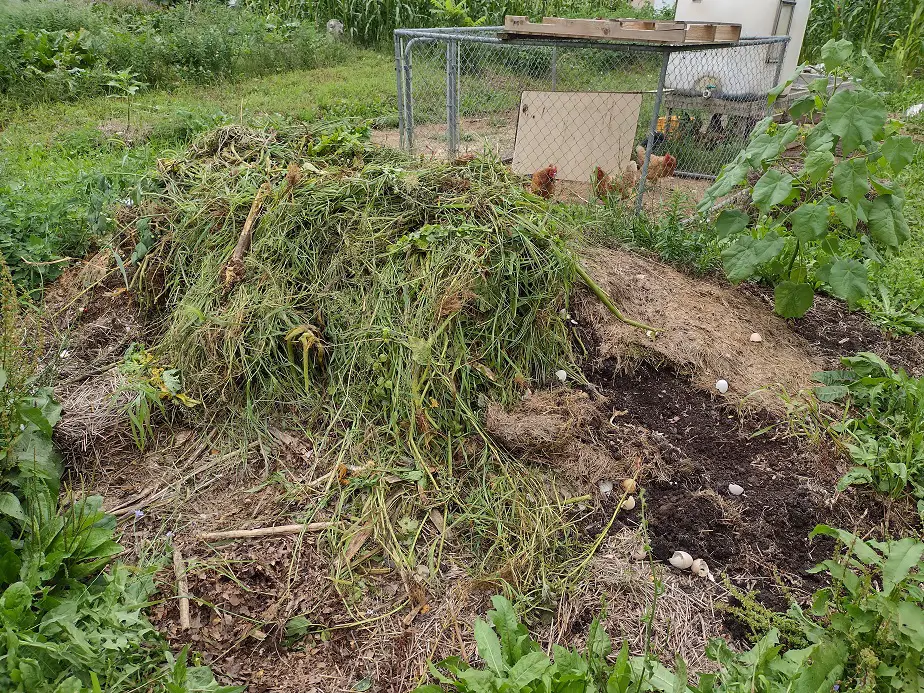
Mix it With Compost
When mixed with compost or compostable material, biochar increases the quality of compost many times over. It improves the texture, tilth, microbe count, and aeration of the mix. Biochar increases the breakdown time of compost while allowing it to retain more of its initial nutrients.
When we look at the biological function of biochar, it’s incredible for compost. Biochar increases the livable surface area for soil bacteria. Adding biochar to compost consistently shows greater numbers and greater functions of beneficial soil bacteria and lesser numbers of harmful bacteria.
Part of it is due to the pH of a proper soil biochar. Other reasons are likely yet unknown. What we do know is that it has an outstanding improvement factor on any compost pile.
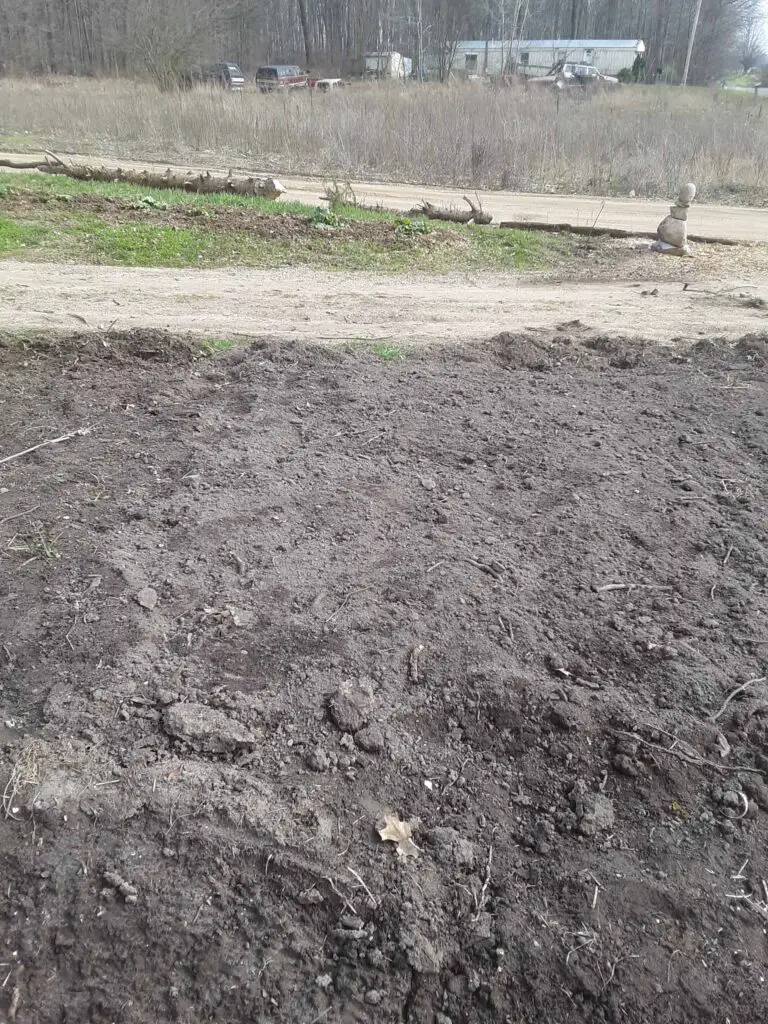
Mix it Into Topsoil
Biochar mixed into topsoil is like compost that won’t break down, sort of. That’s my primary use for biochar, to go in the soil. Biochar will benefit most all soil types. Extreme alkaline soils should not have biochar added unless it has a pH of 7 or lower. Most biochar is a bit higher than 7.
Inclusion rates as low as 1 percent in the top 6 inches of sol show appreciable increases in water-holding capability, nutrient-holding qualities, and improved soil texture. I like to mix it in at 5 percent of my topsoil. That’s spread about 2 inches deep, then hoed or shallowly tilled into the soil.
Compost has a higher function of feeding soil life than biochar ever could. It’s also better at holding water and nutrients. But, compost breaks down comparatively fast in the soil. Biochar doesn’t really break down. We can see biochar in soils of the Amazon basin from an estimated 1,000 plus years ago.
For a problematic soil such as very sandy or heavy gravel soils, or soils of a volcanic till, a biochar will permanently alter the soil structure for an improved state. It’s not quite as potent as compost, but compost breaks down about 80- percent in 3 years. Biochar is permanent.
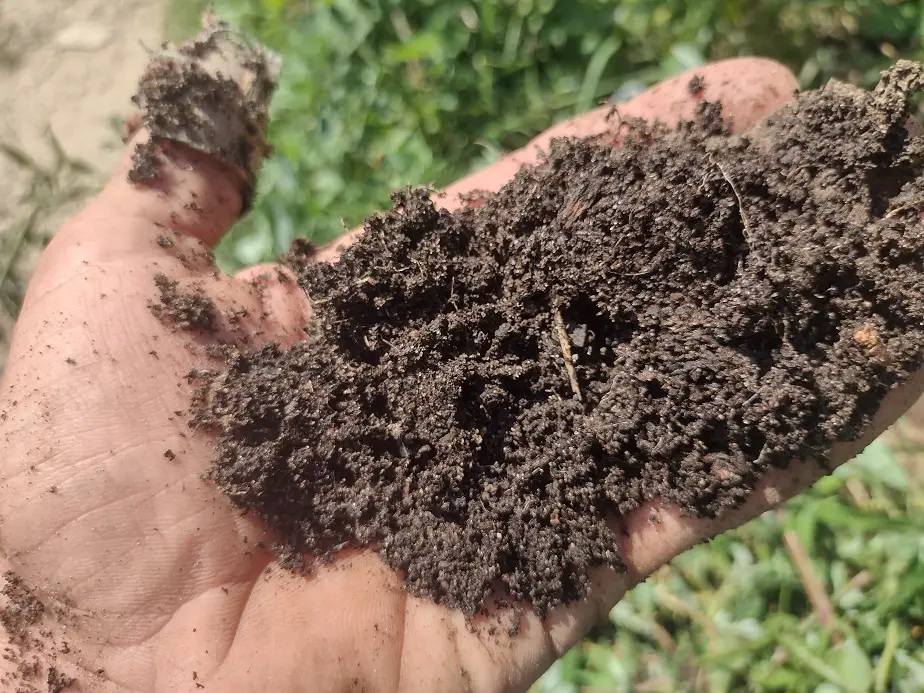
Add it to Potting Soil
In my opinion, the best potting soils are 10 percent biochar. You can add biochar at a 1:10 ratio to any potting soil, but it’s best added to a heavy, compost-rich soil. Biochar can replace a large portion of the traditional peat moss or coco choir used in potting soils today.
I make all my own potting soils for our nursery sales. I use a blend similar to this:
- 5 parts compost
- 5 parts topsoil
- 1 part biochar
Sometimes I alter the recipe or add more char, depending. I think my potted tree seedlings do better with double that amount of char.
I have recipes of m different soil mixes in this article: Potting Soil vs Garden Soil (and DIY recipes)
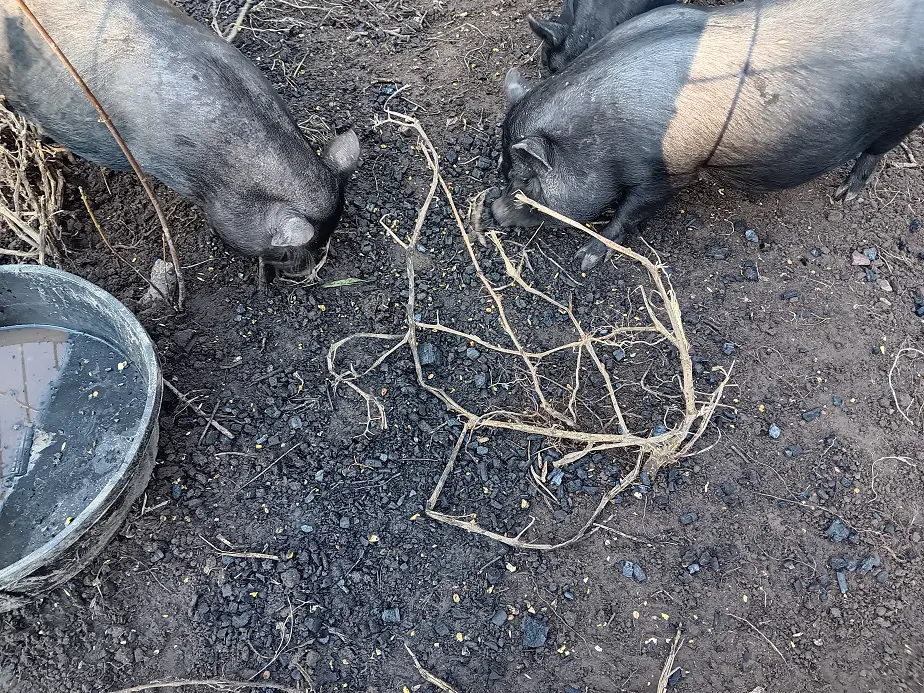
Use it as a Livestock Health Supplement
Biochar is used by specialty feed manufacturers as a powerful but gentle dietary supplement for the health of virtually all animals. When ingested, it improves the gut health of animals. It causes noticeably better nutrient absorption, reduced E. coli and salmonella, and fewer digestion-related problems.
When you improve digestion, the entire body strengthens. I have studied most of this from the point of raising pigs because that’s the animal we do most. I have seen an 8-10 percent increase in average daily gains by adding 1-2 percent biochar to a pig feed.
It does two things primarily. Number one, it absorbs the toxic by-products of e-coli and salmonella in the gut. Number two, it absorbs a significant amount of residual glyphosate in the gut resulting from herbicide-laced feed.
Research proves that even in residual trace amounts, glyphosate kills up to 50 percent of the species of beneficial gut bacteria which leads to an increase in bad bacteria and a decrease in good gut function.
Biochar is used in some dog health supplements, and by several large hog and dairy operations to bost the growth and production of their animals.
Use to treat Colic in Horses (and other animals)
Biochar is used as a remedy to treat digestive issues in horses and to prevent foundering. It’s often administered for diarrhea, cramping, gas, and colic in horses. It has the same effect on almost all animals.
A common baby medication, Colic Calm Gripe Water, uses biochar ( called activated charcoal in the medical industry) mixed with water to calm these same types of digestive discomforts.
If you have horses, you probably know the big fear of colic in horses. It can easily lead to foundering, and there’s not a lot to be done at that point. Foundering kills horses. You can prevent foundering by treating early colic with biochar, or even using it fairly regularly as a preventative supplement.
As cheap as the stuff is, you ought to have a bin or two of it around.
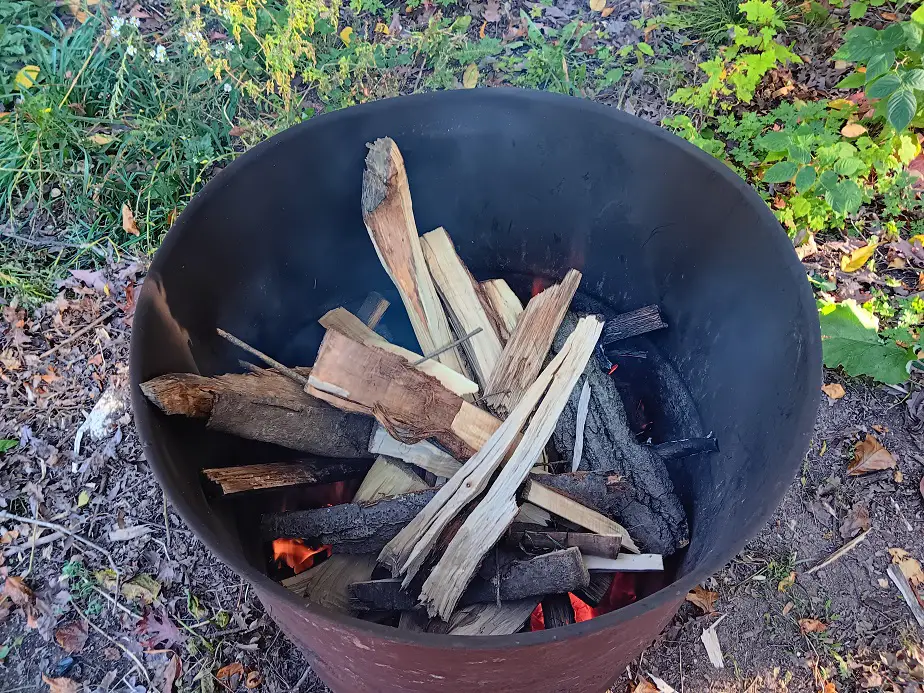
Use it as a Fire Starter
Biochar is a grade-A fire kindling material. It lights easily, burns quite hot, and will ignite even damp wood fairly easily. I used a handful of char to start my woodstove this morning. I just put a pile in the front of the stove with a small piece of crumpled-up paper on top, then lit the paper.
Several pieses caught, ad with a little breath, it made a hot, glowing bed of coals. Then it was easy to get my wet wood to light. I really do need to get more of my wood inside to properly dry out.
Biochar is a softer, cleaner version of charcoal. It’s this way because it’s made at a higher temperature, or at least it better be. Some products are much lesser quality. Because it’s softer than regular BBQ charcoal, it lights much more easily. It also gets hotter because it’s not trying to burn off so many impurities.
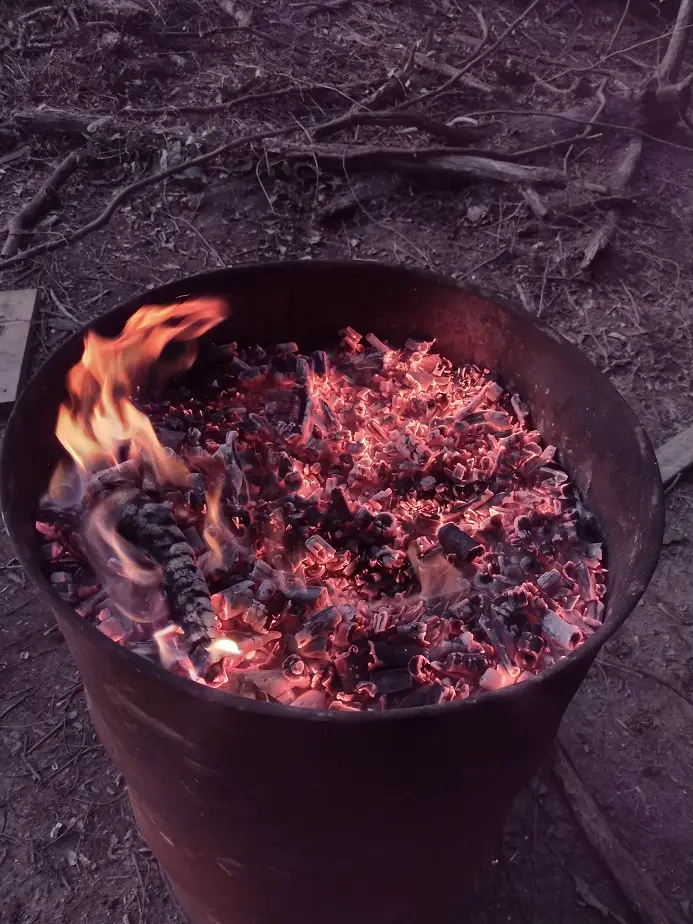
Use it for Cooking
Biochar can be used as a cooking fuel. It lights easily, burns hot, and has virtually no smoke, What’s not to like about that? It does burn fast compared to regular lump charcoal, but that’s actually the traditional way to cook high-end Japanese BBQ like Wagyu.
It’s done over a charcoal that’s considered identical to biochar, just left in bigger pieces. Because it produces basically no smoke, it’s used indoors at many of the finest steakhouses in Japan.
It gets hot. It heats up very evenly quite quickly. It cooks food well with an early sear due to the heat. And, because it’s produced at a higher temperature, it doesn’t have the volatile compounds that are considered mildly carcinogenic.
Related Articles:

